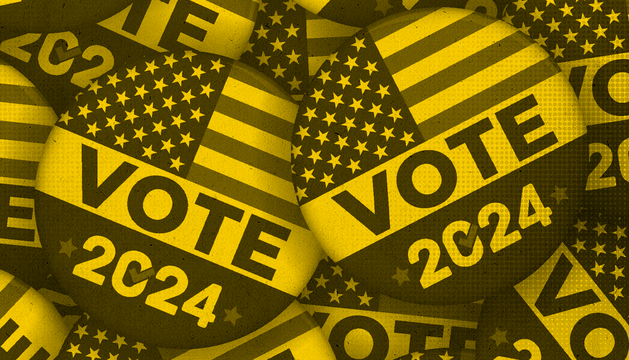North Carolina: Limits on Voter Eligibility Challenges
This resource details state and federal laws that guard voters against unfounded challenges to their eligibility.
Part of
North Carolina, like most states, allows private individuals to challenge another person’s eligibility to vote. This resource details state and federal laws that protect challenged voters. North Carolina’s strong voter protections include a requirement that most challenges be made in writing under penalty of perjury; a requirement that, for pre-election challenges, the challenger appear in person and provide sworn testimony; and a burden of proof on the challenger to overcome a presumption that the challenged voter is qualified to vote.
Challenges to a voter’s registration or absentee ballot must be in writing and signed under penalty of perjury by a voter registered in that county.
- The county board of elections can only process registration challenges received by the 25th day before Election Day.1
- Absentee ballot challenges must be submitted within five business days of the election.2
- Challengers must complete a state form, for each challenge, under penalty of perjury.3
North Carolina law presumes a voter’s eligibility and the burden is on the challenger to affirmatively prove the voter is ineligible.
- A challenger has the burden of proving, with specific evidence, that a voter is ineligible.4
- “When possible, evidence should be reliable, first-hand, and specific to the voter challenged.”5
- “An allegation that the voter has moved from their residence and should be removed from the county’s voter rolls is not a permissible basis for a challenge.”6
- Similarly, “The county board’s decision to approve an absentee application is not subject to review through a voter challenge.”7
- It is a felony to swear to a false statement made in relation to a voter challenge.8
- In addition to state law safeguards, the National Voter Registration Act prohibits the systematic removal of voters within 90 days of a federal election.9Mass challenges, or any challenges based on “generic, non-individualized evidence” such as undelivered mail, internet searches, or database matching, could lead to systematic removal of voters and are therefore prohibited during this 90-day period.10
The National Voter Registration Act also limits the grounds on which a voter can be removed from the rolls before Election Day. Specifically, they can only be removed: if the voter affirms the change; if state law requires removal for a criminal conviction or mental incapacity; for the death of the voter; if the voter confirms a change of residence in writing; and based on other evidence of a change of residence, but only after the state sends a notice and the voter both fails to respond and fails to vote in the next two federal general elections.11
For pre-election challenges, county boards of elections are required to hold a preliminary hearing to determine if there is probable cause to move forward on the challenge.
- When a challenge has been filed, the county board of elections must schedule a preliminary hearing on the challenge.12
- If the challenger fails to appear and provide sworn testimony, the challenge must be dismissed.13The challenged voter does not need to appear at this preliminary hearing, “which is intended to eliminate challenges that are so deficient they should not advance to a hearing where the voter would be required to defend themselves.”14
- If the board of elections finds probable cause that the challenged voter is not properly registered, the board must schedule a full evidentiary hearing on the challenge and mail a notice to the voter 10 days before the hearing.15
- A voter who cannot attend the full hearing can be represented by another person if they provide the board with an affidavit stating their eligibility to vote.16
A voter has the right to appeal the decision on a challenge to the county superior court within 10 days of the challenge being granted.17
For challenges filed during early voting and on Election Day, the challenged voter has a right to a same day hearing and decision on the challenge.
- When a voter is challenged during in-person voting the chief judge and judges of election must hold a hearing before the polls close on the day the challenge is made.18The judge must explain the qualifications for voting to the challenged voter.19
- If the voter takes an oath and provides any required proof of identity or residency, the voter must be allowed to vote a regular ballot.20
- Even if the election judges find affirmative proof that the voter is ineligible, the voter must be allowed to vote a challenged ballot.21The voter has the right to appeal the decision to the county superior court within 10 days of the challenge being granted.22
Challenges based on returned mail are prohibited during in-person voting.23
For challenges to absentee ballots, the county board of elections must hold a hearing and allow the challenged voter to appear.
- The full county board of elections is also required to hold a hearing on absentee ballot challenges on the day set for the county to compile the election results.24
- To comply with state and federal due process protections, the board must send timely notice that gives the voter the opportunity to attend the hearing and defend against the challenge.25For challenges filed during the canvass period, the board should also contact the voter by phone and email if available.26
- The challenger must testify under oath at this hearing.27
A voter can appeal an adverse decision to the county superior court within 10 days.28
• • •
Voters have the right to vote free from intimidation under federal and state law. Baseless challenges to a voter’s eligibility can harass and intimidate the voter being challenged, as well as other voters waiting to vote at the polls. More information on the federal and state laws that protect North Carolina voters from intimidation can be found here.
If voters discover they’ve been mistakenly removed from the rolls, they can re-register and vote at an early voting site, but only during early voting and not on Election Day.29
Endnotes
-
1
N.C. Gen. Stat. § 163–85(a).
-
2
N.C. Gen. Stat. § 163–89(a).
-
3
N.C. Gen. Stat. §§ 163–85(b), 163–89(c), 163–90.3, North Carolina State Board of Elections, Voter Challenge Procedures Guide, 1–3, December 18, 2023, https://s3.amazonaws.com/dl.ncsbe.gov/Legal/Voter%20Challenge%20Guide.pdf.
-
4
N.C. Gen. Stat. §§ 163–85(d), 163–89(c), 163–90.1(b).
-
5
NC State Bd. of Elections, Voter Challenge Procedures Guide, 6.
-
6
Id.
-
7
NC State Bd. of Elections, Voter Challenge Procedures Guide, 4; see also Arnett v. N.C. State Bd. of Elections, No.20 CVS 570, 5–6 (N.C. Super. Ct., Oct. 22, 2020).
-
8
N.C. Gen. Stat. § 163–90.3.
-
9
52 U.S.C. § 20507(c)(2)(a).
-
10
U.S. Department of Justice, Voter Registration List Maintenance: Guidance under Section 8 of the National Voter Registration Act, 52 U.S.C. § 20507, 4, September 2024, https://www.justice.gov/crt/media/1366561/dl; NC State Bd. of Elections, Voter Challenge Procedures Guide, 6.
-
11
52 U.S.C. § 20507(a)(3), (d).
-
12
N.C. Gen. Stat. § 163–85(d).
-
13
Id.
-
14
NC State Bd. of Elections, Voter Challenge Procedures Guide, 9; N.C. Gen. Stat. § 163–85(d).
-
15
N.C. Gen. Stat. §§ 163–85(d), 163–86(b).
-
16
N.C. Gen. Stat. § 163–86(d).
-
17
N.C. Gen. Stat. § 163–90.2(c).
-
18
N.C. Gen. Stat. § 163–88(a).
-
19
Id.
-
20
Id.
-
21
Id.
-
22
N.C. Gen. Stat. § 163–90.2(c).
-
23
N.C. Gen. Stat. § 163–88(c).
-
24
N.C. Gen. Stat. § 163–89(e).
-
25
NC State Bd. of Elections, Voter Challenge Procedures Guide, 11–12.
-
26
Id.
-
27
N.C. Gen. Stat. § 163–89(e).
-
28
N.C. Gen. Stat. § 163–90.2(c).
-
29
N.C. Gen. Stat. § 163–82.6B.
More from the Limits on Voter Eligibility Challenges series
-
Ohio: Limits on Voter Eligibility Challenges
This resource details state and federal laws that guard voters against unfounded challenges to their eligibility. -
Pennsylvania: Limits on Voter Eligibility Challenges
This resource details state and federal laws that guard voters against unfounded challenges to their eligibility. -
Texas: Limits on Voter Eligibility Challenges
This resource details state and federal laws that guard voters against unfounded challenges to their eligibility.

